Graham Reid | | 3 min read
Dave Dobbyn: Betrayal
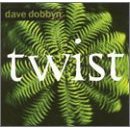
With the Australian success of the Footrot Flats film in the early Nineties, it made sense for Dave Dobbyn to relocate across the Tasman and ride the wave of popularity of the songs he wrote for it.
And in that great tradition of indifference Australians have shown New Zealand musicians -- more so then than today -- Dobbyn’s career languished. But his music didn’t.
In ‘93 he released the excellent Lament for the Numb which he’d recorded in Los Angeles, the title reflecting his mood at the time: he felt so desensitised to his own life that he wasn’t even experiencing it.
Again however the album fell on deaf ears -- on both sides of the Tasman in fact -- and so Dobbyn came back home.
And delivered the best album of his career.
With Neil Finn producing for Dobbyn in his own studio, Twist was an album that set a benchmark in Dobbyn’s creative life, and in New Zealand music.
Full of strange and slightly disconcerting sonic effects from equipment like an optigan (“a crazy floppy disk thing that has a tacky lo-fi sound and crackles like a phonograph”) as well as curious soundbeds on which Dobbyn’s beautiful ballads such as Naked Flame and Betrayal lay, this was an album that beguiled the ears but also touched the heart.
Twist probed deep emotional spaces, and there was also a sense of place about the album which perhaps reflected his period of writing at Karekare before the sessions started. Colour and geography are everywhere on Twist.
“There’s a black blue front stole the west horizon, under ocean song hear the tolling bell,” he sings on the opening lines of the ballad It Dawned on Me.
As with the Beatles’ Revolver and Sgt Pepper‘s (which Dobbyn referred to in interviews at the time), this was an album that wasn’t afraid to explore the possibilities of the studio and -- with engineer Tchad Blake -- some songs ended up very different from how they were originally conceived.
I Can’t Change My Name (the lyrics reflecting how he felt trapped by his past and was looking for a new direction) he expected to be string-laden but ended up him just playing it on piano over the lightest of backing by drummer Ross Burge tapping his kit.
And What Do You Really Want he admitted could have so easily been his “piano ballad”, but came out as a scouring, guitar-driven rocker sitting at the mid-point of the album before the disturbing ambience of the slightly eerie Gifted and the haunting atmospherics of Betrayal.
“We tried all sorts of things on this album,” Dobbyn told me at the time. “It’s just a way of finding some magic.”
And he certainly did.
Twist was also the remarkable result of a series of rare conjunctions: Dobbyn came up with a group of great songs but was willing to take risks because after the failure of Lament he had little to lose, there was the supportive environment of the studio with Finn and Blake, and the music climate of New Zealand was changing, becoming more accepting and integrated. NZ on Air was putting Kiwi music into the ears of hitherto reluctant radio programmers, there was a sense of optimism and possibility in the air about local music -- Dobbyn’s album reflected this, and arrived in time for the new mood.
Dobbyn was on a personal threshold also: he had new management (Grant Thomas who also managed Crowded House at the time), and he was back with Sony Music who had previously been supportive of his career.
But the bare fact is that he created what many would argue was the album of his long career.
In 1994 when I interviewed Dave Dobbyn about Twist I said the album was “breathtaking in its daring, ambition and reach” and that in the weeks before its release those who’d heard it were “groping for words about this multi-textured, beautifully crafted but earthy and organic album”.
I also noted “with the craftsmanship that seems effortless to outsiders, he has penned some of his most beautiful songs -- It Dawned on Me with its gentle strings and bass clarinet parts, and the haunting Naked Flame particularly”.
All of that remains true, despite the passage of a decade and a half, and all the music Dobbyn has produced in that intervening period.
Twist was, and is, an album of emotional depth and musical texture. And a breakthrough on many levels for Dave Dobbyn after some bleak years.
“Already I’ve had a bunch of people saying it’s the best I’ve done,” he said. “But the great part is I now know how to get back to that point of creativity and I don’t feel spent in any way like I always used to.”
The creative recovery began here with the exceptional Twist, an Essential Elsewhere album.

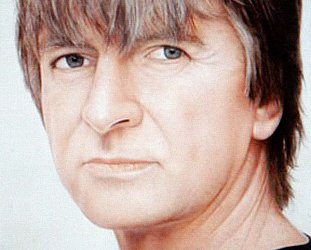

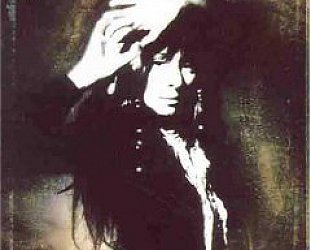
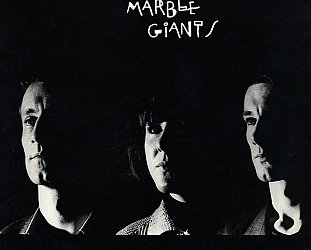
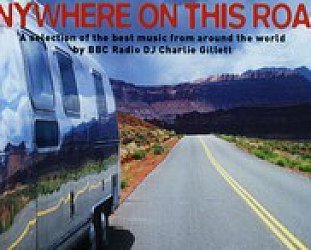

Andrew Schmidt - May 18, 2009
This was certainly the one that stopped me in my tracks. It was a complete album with each song feeding into the next and building an overall mood. A mood which I interpreted back then as meaning finding peace after a tumuluous journey. I always played it in tandem with Crowded House's Together Alone which seemed to share its south pacific psychedelic feel and sense of coming home.
SavePaul Rowe - May 18, 2009
This takes me back and is, as you say, a fine album.
SaveNot to take anything away from Dobbyn, but I always thought it was a shame Neil Finn didn't produce more records. He did Greenstone by Emma Paki, which sounded superb, and I gather the band had a big hand in producing Together Alone. He had spoken of making an album of "Pacific Psychedelia" but apart from bits of the first Finn bros record, it never happened...
post a comment